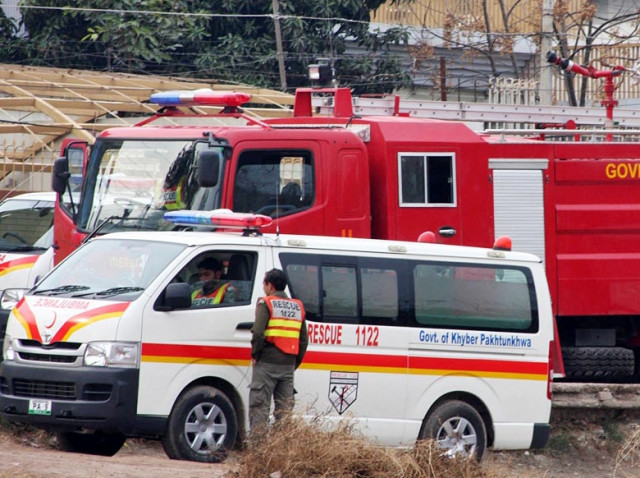Better preparedness key to saving lives
Consultative meeting calls for mainstreaming DRR into sectoral development policy

Operations to be extended to five more districts in Khyber-Pakhtunkhwa. PHOTO: ONLINE/ FILE
This was stated by speakers at a consultation meeting on the Sendai Framework on Disaster Risk Reduction (SFDRR) at the Sustainable Development Policy Institute in Islamabad on Tuesday. The panel had been jointly organised by the United Nations Development Programme (UNDP), National Disaster Management Authority (NDMA), SDPI, with support from UK-AID.
Emergency services: Sahiwal rescue officials received 21,297 calls in 2016
The meeting was aimed at seeking recommendations from various DRR/DRM actors and stakeholders on devising future actions and activities which would help achieve SFDRR objectives.
NDMA Chairman Major General (retired) Asghar Nawaz said that though Pakistan had achieved a number of milestones towards building resilience of vulnerable communities.
He added that there has been a shift from disaster response to preparedness with disaster risk finance and insurance plans. Further, there is a strong disaster management architecture in the country with appropriate laws, policies and plans including the contingency plans.
Maj Gen Nawaz added that Pakistan still faces some challenges owing to its vulnerability to diverse nature of climate risks and hazards. However, the government was working to invest in preparedness and to provide an enabling environment to deal with disasters.
“We have a national disaster management plan which is being aligned with the objectives and targets of SFDRR,” he added.
‘Year of Safety’: Rescue 1122 rescued 731,107 people last year
Ignacio Artaza, the UNDP Country Director for Pakistan, said his agency would like to work closely with local partners to make Pakistan more resilient to disasters.
“We have witnessed increasing intensity and frequency of disasters which have affected the resilience of Pakistan,” Artaza said, adding that the country has multisectioral vulnerability and exposure to hazards while it was the seventh most affected country.
Dr Abid Qaiyum Suleri, SDPI’s executive director, said that disaster risk reduction plans would yield better results if they were made inclusive ensuring participation of all stakeholders.
He further stressed that measures for disaster risk reduction should be broadened while the effects of man made crises, including the victims of terror acts, should also be supported under such efforts.
Published in The Express Tribune, March 1st, 2017.



















COMMENTS
Comments are moderated and generally will be posted if they are on-topic and not abusive.
For more information, please see our Comments FAQ